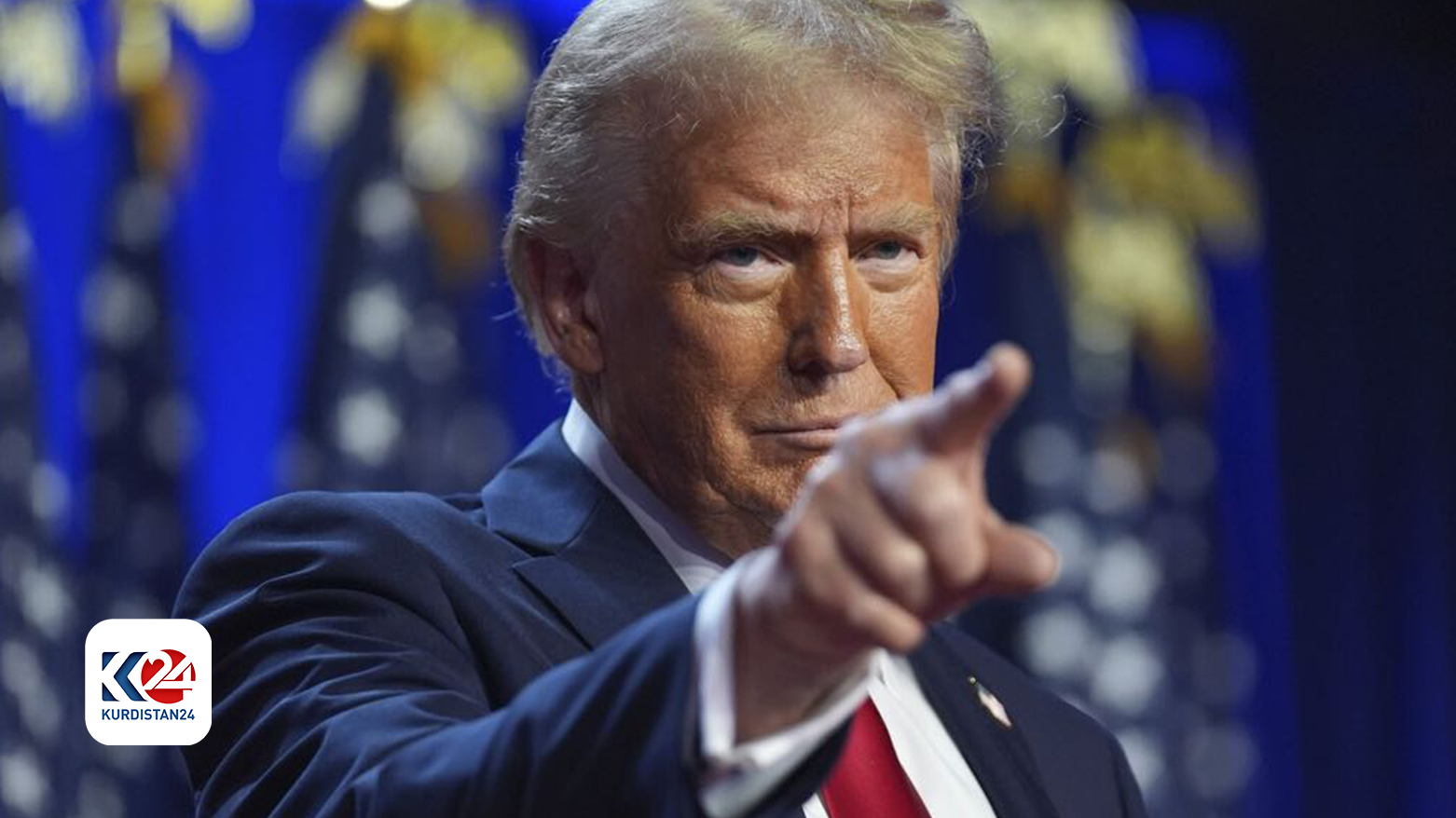Trump’s Victory: Bad News for Iran
Almost certainly, U.S. policy toward Iran will be a lot tougher under Trump than it was under Biden.

WASHINGTON DC, United States (Kurdistan 24) How will Donald Trump’s election affect U.S. Middle East policy? Much of that crucial question remains to be seen, but one thing that is relatively certain is that a new Trump presidency is bad news for Iran and its proxies.
Donald Trump vs. Joe Biden: Tough Policy vs. Conciliatory Policy
In his previous term as president (2009-2013), Trump was tough on Iran, reversing conciliatory measures undertaken by his predecessor, Barack Obama.
Obama had opposed the 2003 war that overthrew Saddam Hussein and his regime. Obama thought that by reconciling with Iran as president, he could prevent another ill-advised war against a Middle Eastern regime that some future, overly aggressive (in his view) Republican administration might undertake.
That was the context for Obama’s drive to conclude the Iranian nuclear deal, formally known as the Joint Comprehensive Plan of Action (JCPOA), which lifted sanctions on Iran.
When Trump took office, he reversed key aspects of Obama’s conciliatory posture. Trump took the U.S. out of the JCPOA and re-imposed the earlier Iranian sanctions.
In addition, under Trump, in January 2020, the U.S. assassinated Qasim Soleimani, head of the Quds Force of Iran’s Islamic Revolutionary Guards Corps (IRGC), as Soleimani arrived at Baghdad’s International Airport, coming from the Levant.
The head of a prominent Iraqi militia, Kata’ib Hizbollah—Jamal Ja'far Muhammad Ali Al-Ibrahim, who used the alias, Abu Mahdi al-Muhandis and who also held the post of Deputy Head of Iraq’s Popular Mobilization Forces (PMF)--had gone to the airport to meet Soleimani.
Ibrahim was also killed in the U.S. strike. Almost certainly, the Iranian-backed militias in Iraq vividly recall that event.
After the end of Trump’s presidency, Iranian intelligence began to plot to kill several Trump administration officials as revenge. Its targets included Trump himself, as well as Mike Pompeo, who had been head of the CIA, before becoming Secretary of State.
Pompeo’s name is now mentioned as a candidate for a senior post in the Trump administration, perhaps Secretary of Defense.
Neither Trump, nor any other individual targeted by Iran, will have a positive view of that country. Indeed, they are likely to have an extremely negative view.
This contrasts with the Biden administration, which assumed office with a perspective similar to that of the Obama administration: it is important to repair U.S. ties with Iran.
The Biden administration’s effort focused on restoring the JCPOA. Since that would entail the end of sanctions, the administration assumed that Tehran would welcome the effort.
But that assumption proved wrong—and in February 2023, the Biden administration was finally prepared to acknowledge that publicly.
Read More: US no longer interested in reviving JCPOA
But this meant that for two years, as it hoped to revive the JCPOA, the Biden administration had turned a blind eye to Iran’s destabilizing actions in the region, including in Iraq.
Iranian Currency Drops to Record Low
Following the announcement of Trump’s electoral victory, the value of the Iranian currency dropped to a record low on Wednesday.
“The rial traded at 703,000 rials to the dollar, traders in Tehran said, breaking through the record before recovering slightly later in the day to 696,150 to $1,” AP reported, as it suggested that Iran’s Central Bank may have intervened to limit the damage to the Iranian currency.
The drop in the rial’s value reflected widespread concern that, as president, Trump will reestablish the full suite of sanctions, along with tough enforcement, and Iran’s economy will suffer as a result.
Other Aspects of Iran’s Response to Trump’s Election
Iran does not appear well-prepared for Trump’s victory, which, indeed, does put Tehran in a difficult position.
Iranian government statements appear divorced from reality and that may well reflect Tehran’s concern.
On Thursday, the day after the results of the U.S. elections were announced and the Middle East learned that Trump would be the next president, Iran described the results as an opportunity for the U.S. to review “misguided policies,” as AFP reported.
“We have had very bitter experiences with the policies and approaches of various U.S. administrations in the past,” Esmaeil Baghaei, Iran’s Foreign Ministry Spokesperson said.
Yet no experience in Iran’s recent dealings with the U.S. was more bitter than its experience with the Trump administration! And Trump has given no indication that he intends to change.
Before Trump was declared the winner, “Iran had dismissed the U.S. election as irrelevant,” AFP observed, as it quoted Fatemeh Mohajerani, the Iranian Government Spokesperson.
Mohajerani is the first woman in Iran to hold that position, which she assumed in July—a product of the more liberal presidency of Masoud Pezeshkian.
“The general policies of the United States and the Islamic Republic of Iran are set,” AFP quoted Mohajerani as saying earlier.
“It doesn’t matter who becomes president,” she continued. “Plans are already in place to ensure stability in people’s livelihoods.”
But, of course, it does matter—and it matters a lot. Almost certainly, U.S. policy toward Iran will be a lot tougher under Trump than it was under Biden.